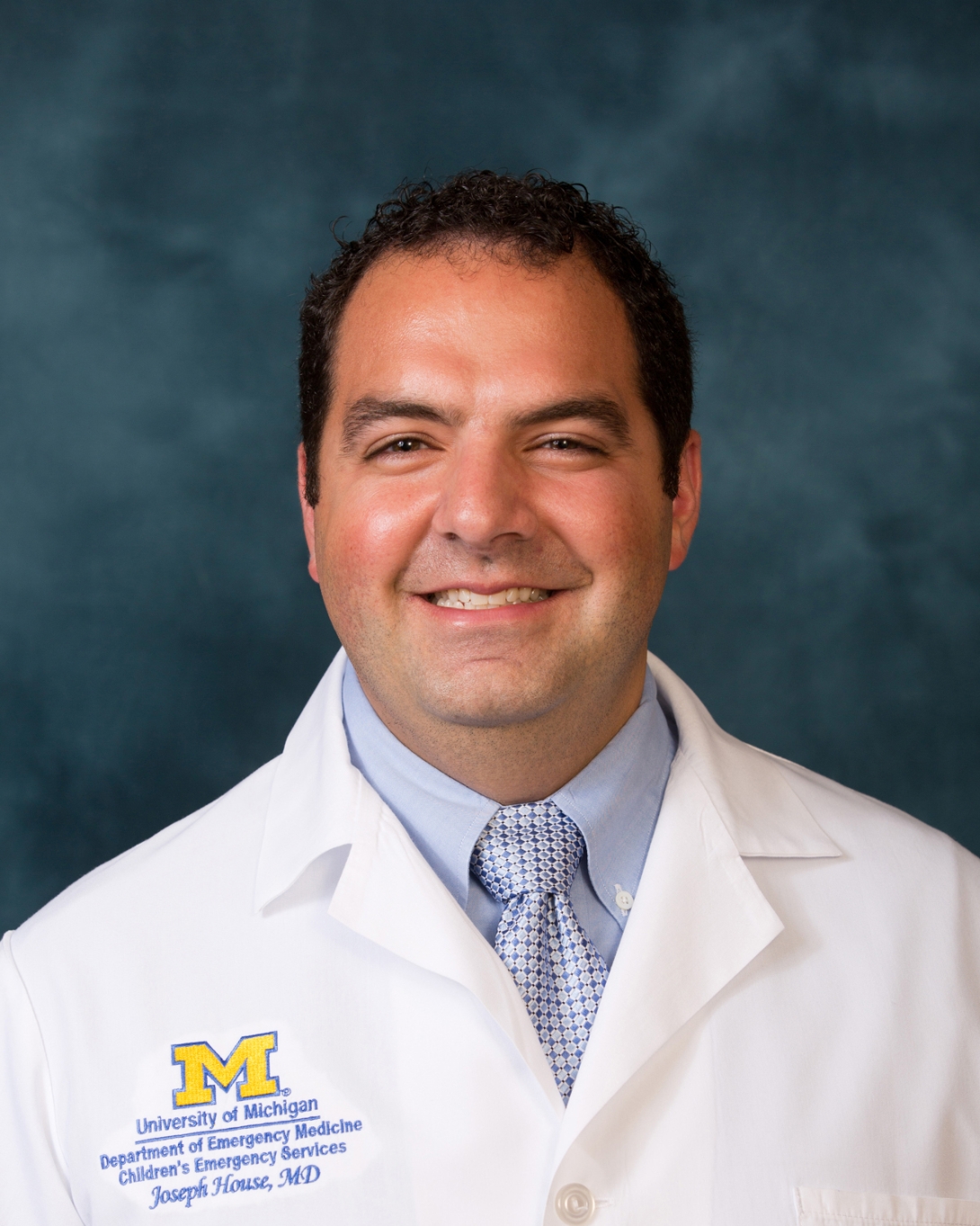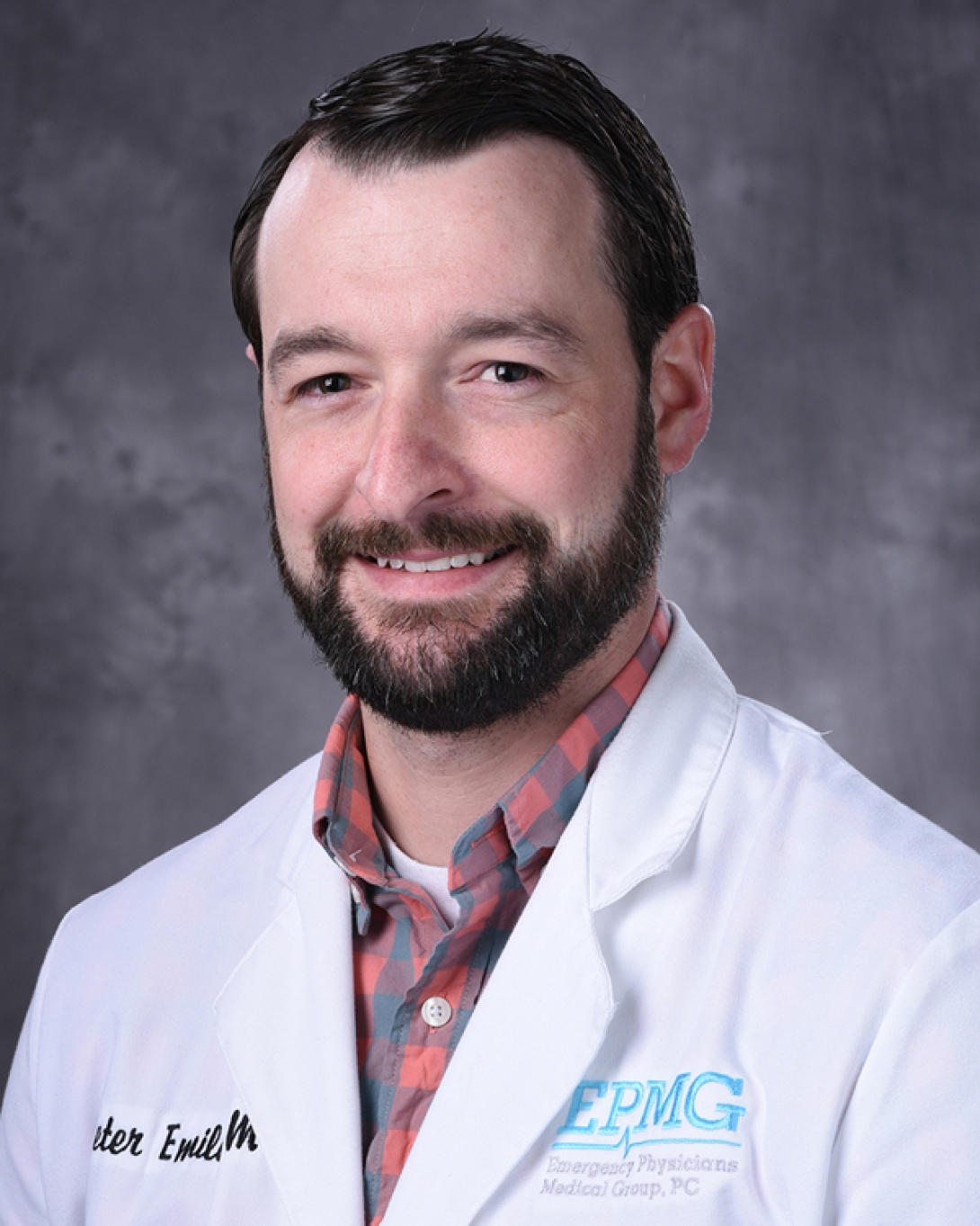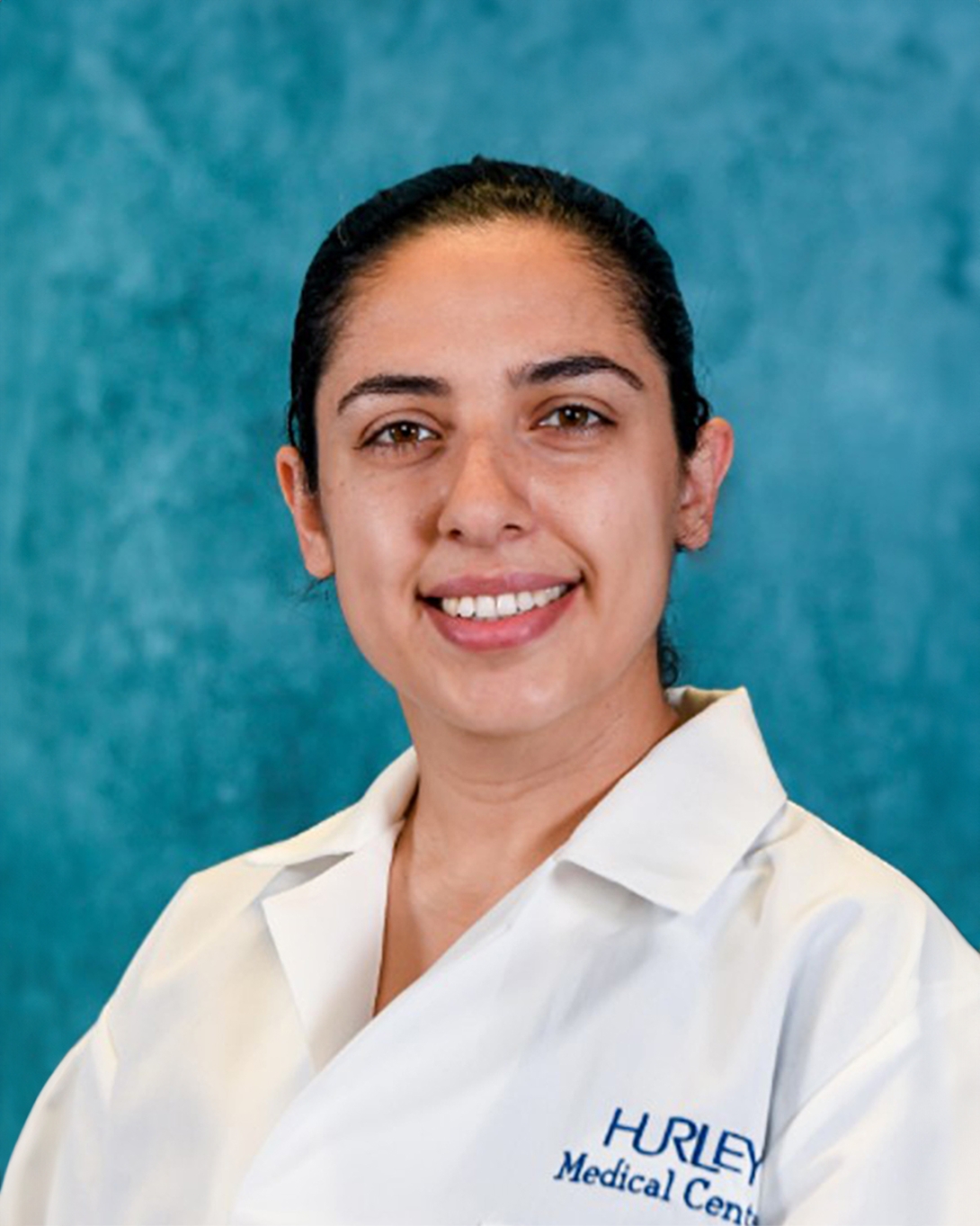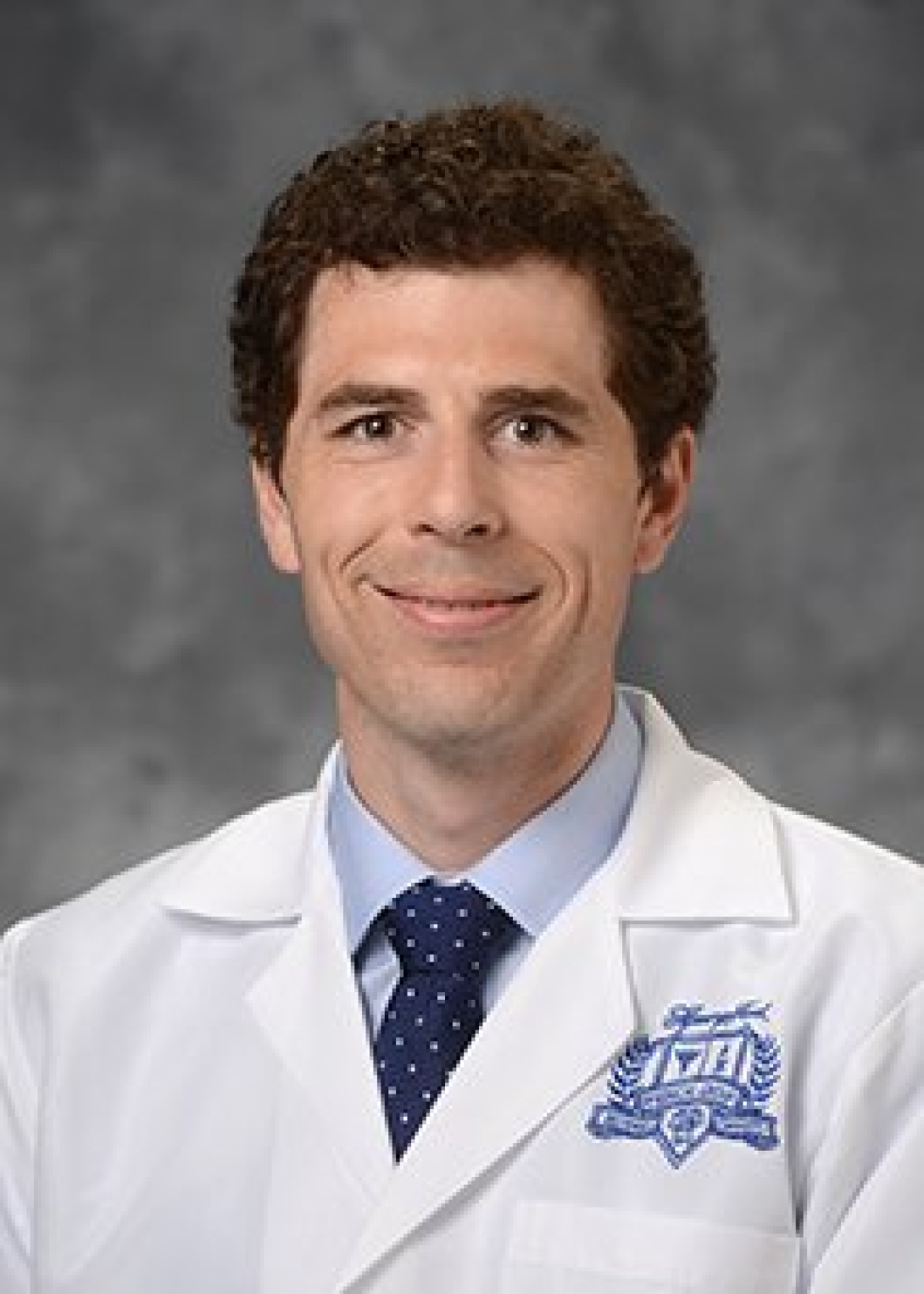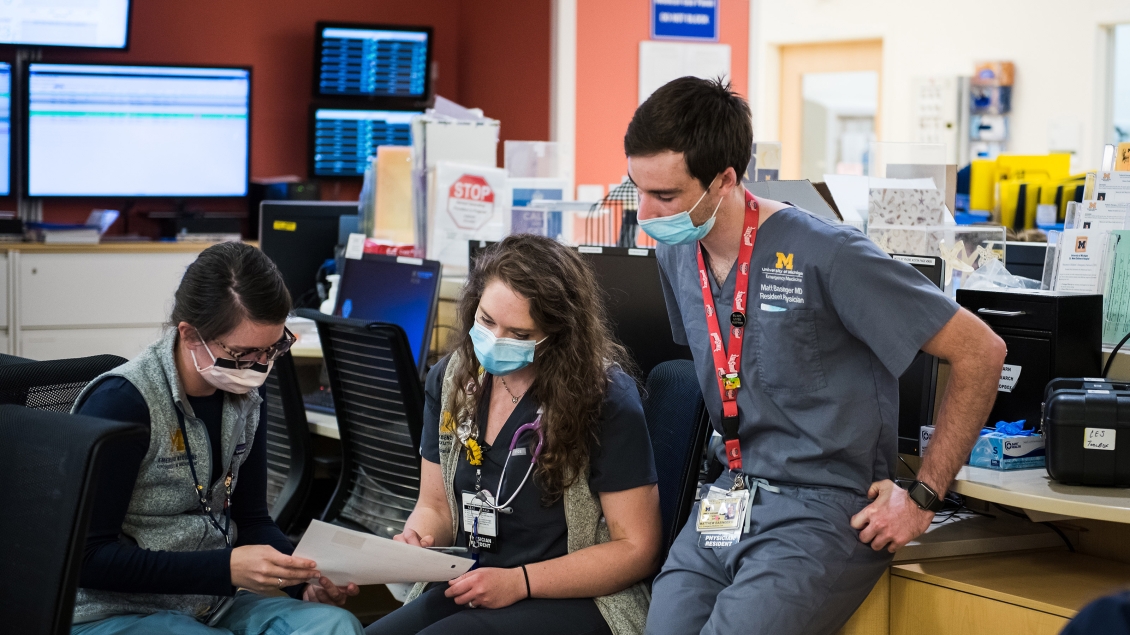
The Emergency Medicine Clerkship at the U-M Medical School is a required four-week clinical rotation for Branch students. Students will also attend didactic teaching sessions which will present core concepts of emergency medicine and allow them to develop a knowledge base which will be reinforced through their clinical experiences.
The goal of this clerkship is to expose each student to basic principles of Emergency Medicine, including triage, resuscitation and evaluation of undifferentiated patients, both adults and pediatrics.
Your training ground is the University of Michigan Medical Center Emergency Department (adult and pediatric). In addition, students may arrange to rotate at Trinity Health Ann Arbor Hospital, Hurley Medical Center in Flint and Henry Ford Hospital in Detroit. As a medical student, you'll learn:
Knowledge
- How to recognize life-threatening and common emergent conditions seen in the emergency department patient
- How factors such as age and pre-existing conditions affect the response to and management of acute injury and illness
- To identify the different and critical roles played by allied health personnel in the Emergency Department and how these individuals interact to provide cohesive patient care
Skills
- How to demonstrate effective and compassionate interactions with patients and families as well as with health care team members in both verbal and written media
- How to apply appropriate and effective communication with consultants in the management of acute injury and illness
- How to demonstrate skill in performing problem-focused histories and physicals examination in the undifferentiated ED patient
- Modify a history and physical examination based on the needs of the clinical situation and patient characteristics
- Recognize critical medical conditions and implement initial resuscitation measures including basic airway management and volume resuscitation as well as obtain support from experienced medical personnel in a timely fashion
- Generate an initial problem-focused differential diagnosis and management plan for the ED patient with attention to potential life-threatening conditions in the undifferentiated patient
- Recognize and acknowledge ethical issues and questions
- How to perform basic ED specific skills such as basic airway management, wound care, vascular access and assessment of the traumatized patient
- How to recognize knowledge deficits and learning needs through reflective self-assessment and develop and implement a plan to remediate knowledge deficits and well as develop critical thinking and problem-solving skills
The electives we offer in the Department of Emergency Medicine prepare medical students for residency and a successful career in the field of Emergency Medicine.
- EMERGMED-8400 - Wilderness Medicine
- EMERGMED-8401 - Climate Change and Human Health
- EMERGMED-8700 - Critical Care
- EMERGMED-8800 - Residency Prep Course
Our medical students have access to the Canvas platform, which provides detailed, year-specific course information. Both curriculum-related platforms are updated regularly by the Office of Medical Student Education in collaboration with related department faculty and staff.
We aim to cultivate research focused on preclinical, clinical, implementation and policy aspects of emergency medicine and critical care. Our training opportunities range from summer projects for first-year medical students to long-term career development.
